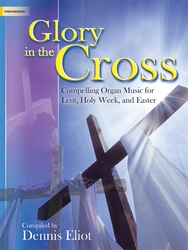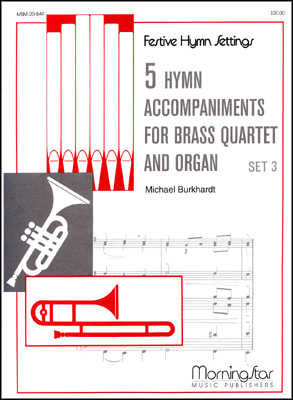- |
User Links
Father, We Thank Thee, Who Hast Planted

Father, we thank Thee, who hast planted
Translator: Bland Tucker (1939)Tune: RENDEZ À DIEU
Communion Songs
Published in 61 hymnals
Printable scores: PDF, MusicXMLAudio files: MIDI, Recording
Representative Text
1 Father, we thank Thee who hast planted
Thy holy Name within our hearts.
Knowledge and faith and life immortal
Jesus Thy Son to us imparts.
Thou, Lord, didst make all for Thy pleasure,
didst give man food for all his days,
giving in Christ the Bread eternal;
Thine is the pow'r, be Thine the praise.
2 Watch o'er Thy church, O Lord, in mercy,
save it from evil, guard it still.
Perfect it in Thy love, unite it,
cleansed and conformed unto Thy will.
As grain, once scattered on the hillsides,
was in this broken bread made one,
so from all lands Thy church be gathered
into Thy kingdom by Thy Son.
Source: Hymns to the Living God #283
Translator: Bland Tucker
Francis Bland Tucker (born Norfolk, Virginia, January 6, 1895). The son of a bishop and brother of a Presiding bishop of the Episcopal Church, he was educated at the University of Virginia, B.A., 1914, and at Virginia Theological Seminary, B.D., 1920; D.D., 1944. He was ordained deacon in 1918, priest in 1920, after having served as a private in Evacuation Hospital No.15 of the American Expeditionary Forces in France during World War I. His first charge was as a rector of Grammer Parish, Brunswick County, in southern Virginia. From 1925 to 1945, he was rector of historic St. John's Church, Georgetown, Washington, D.C. Then until retirement in 1967 he was rector of John Wesley's parish in Georgia, old Christ Church, Savannah. In "Reflecti… Go to person page >Text Information
Related Texts
| First Line: | Father, we thank Thee, who hast planted |
| Title: | Father, We Thank Thee, Who Hast Planted |
| Translator: | Bland Tucker (1939) |
| Meter: | 9.8.9.8 D |
| Source: | Greek, ca. 110; Didache, 2nd century |
| Language: | English |
| Copyright: | © 1943, 1961, 1981, The Church Pension Fund. Used by permission. |
| Liturgical Use: | Communion Songs |
- Year A, Epiphany Season, Eighth Sunday
Related to Matthew 6 (NPM)
English
- Ancient and Modern: hymns and songs for refreshing worship #443
- Anglican Hymns Old and New (Rev. and Enl.) #178
- Armed Forces Hymnal. Catholic Supplement #d24
- Australian Hymn Book #416
- Catholic Book of Worship III #528
- Church Hymnal, Fourth Edition #223
- Church Hymnary (4th ed.) #672
- Churches of Christ Hymn Book #303
- Common Praise (1998) #81
- Common Praise: A new edition of Hymns Ancient and Modern #298 10 shown out of 44
Spanish
Notes
Scripture References:
all st. = John 6:58, 2 Cor. 4:6, Eph. 5:25-27; 6:6-7, 2 Tim. 1:10, 1 John 5:20
This hymn text is rooted in the early Christian church, all the way back to the Greek-language Didache (the Teaching of the Twelve Apostles), a Christian manual from the Church of Antioch, Syria, which some scholars date as early as A.D. 110. To produce this hymn text, F. Bland Tucker (PHH 247) translated selected prayers from chapters 9 and 10 of the Didache.
Stanzas 1 and 2a are from a post-communion prayer, and stanza 2b is from a prayer intended during distribution of the bread. The whole is essentially a hymn of thanksgiving and praise (st. 1) concluded with a petition for the unity of the church (st. 2), which reminds us of Christ's prayer that all believers "may be one" (John 17:21). That unity should be obvious when Christians gather around the Lord's table, but it should also extend within and between Christian denominations.
Tucker's 1939 translation was first published in the American Protestant Episcopal Hymnal 1940. The original first line read, "Father, we thank thee who hast planted." The modernized text in the Psalter Hymnal is the same as that published in the Australian hymnal With One Voice (1977).
Liturgical Use:
Lord's Supper–as a post-communion hymn of thanksgiving; perhaps combined with the text of 310 (as the first stanza) whenever a longer hymn is needed, especially as a choral motet during communion.
--Psalter Hymnal Handbook
Tune
RENDEZ À DIEUGENEVAN 98/118 is the one tune in the Psalter Hymnal used for two psalms. It was first published in the 1551 Genevan Psalter as a setting for Psalm 118; in the 1562 edition it was also set to Psalm 98 (hence both numbers in the tune name). The tune is also often named RENDEZ A DIEV, the French incip…
LES COMANDEMENS DE DIEU
LES COMMANDEMENS (French for "the commandments"), a rich and graceful tune in the Hypo-Ionian mode (major), was used in the Genevan Psalter (1547) for the Decalogue and for Psalm 140, and later in British psalters and in the Lutheran tradition. The first setting in the Psalter Hymnal derives from Cl…


 My Starred Hymns
My Starred Hymns





